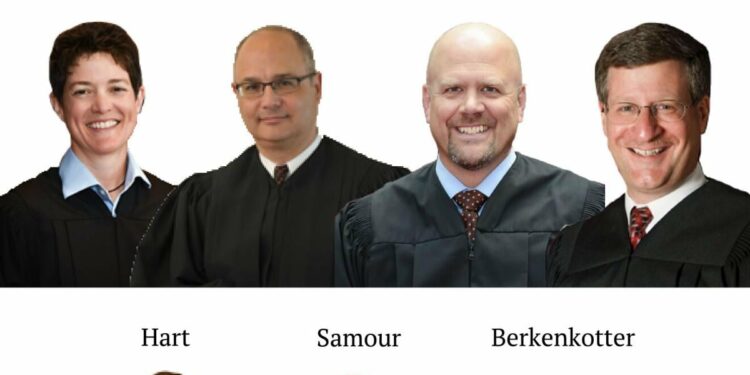The question came to the Supreme Court by way of Colorado’s federal trial court, where Kevin Klabon is suing his employer’s insurance company.
Klabon was on the job, operating a company vehicle in 2019 when another driver injured him in a crash. The at-fault driver was underinsured, meaning his vehicle insurance did not fully cover Klabon’s injuries. Klabon’s lawsuit alleged he incurred at least $500,000 in medical expenses from the accident — far greater than the $25,000 paid by the driver’s insurer.
Travelers, which insured Klabon’s company vehicle, provided up to $1 million in underinsured motorist coverage for such situations, but the company only ended up paying Klabon $45,766.
Klabon alleged his employer made premium payments so that Travelers could provide coverage in the event of an accident, and Travelers was failing to abide by that contract. Consequently, he filed suit.
There was conflicting guidance about whether Klabon’s pursuit of workers’ compensation rendered him ineligible to sue. One ruling from U.S. District Court Senior Judge Christine M. Arguello interpreted the state Supreme Court’s prior cases to mean only one avenue was available. On the other hand, U.S. District Court Judge Daniel D. Domenico believed the opposite was true in a different case.
Moreover, the U.S. Court of Appeals for the 10th Circuit weighed in with a divided decision last year, choosing Domenico’s interpretation by 2-1.
“Thus, this Court finds itself confronted with: directly conflicting decisions from my respected colleagues,” wrote U.S. Magistrate Judge N. Reid Neureiter, who was assigned Klabon’s case. Neureiter asked the Colorado Supreme Court for its opinion, and the justices agreed to intervene.
Northbound traffic crawls along Interstate 25 through downtown Colorado Springs just after 5 p.m. on Thursday during rush hour.
Christian Murdock, The Gazette
During oral arguments to the Supreme Court, Klabon’s attorney, Nelson A. Waneka, explained that workers’ comp only covers certain categories of damages and came nowhere close to compensating Klabon for the entirety of his injuries. Therefore, permitting Klabon to also seek insurance benefits from Travelers in addition to his workers’ comp would not be a “windfall” for him.
Several outside organizations weighed in to the Supreme Court. The Colorado Trial Lawyers Association, backing Klabon, argued the court should not excuse insurers from providing the benefits employers have paid for through premiums. The Colorado Defense Lawyers Association, in support of Travelers, contended lawmakers meant for workers’ comp to be the exclusive solution for on-the-job injuries.
The Supreme Court sided with Klabon and the other judges who interpreted the law to allow for both types of benefits. Berkenkotter acknowledged the state’s workers’ comp law was meant to be the “exclusive” remedy for injured workers. Therefore, the employer and its workers’ comp insurer are immunized from lawsuits.
However, Travelers was not the provider of workers’ comp benefits to Klabon’s company. Moreover, Travelers’ provision of underinsured motorist coverage meant it agreed to cover injuries caused by at-fault drivers. Berkenkotter rejected the notion that allowing for two sources of benefits would be unfair, noting workers’ comp excludes certain financial damages.
“And, in any event, the possibility of overlapping benefits does not allow us to disregard the General Assembly’s intent in passing these statutes. Travelers’s policy argument is best left to the legislature,” she wrote.
The case is Klabon v. Travelers Property Casualty Company of America.
Source link : http://www.bing.com/news/apiclick.aspx?ref=FexRss&aid=&tid=66fb27e739c34cd7a730166a7851789d&url=https%3A%2F%2Fwww.coloradopolitics.com%2Fcourts%2Fcolorado-supreme-court-says-injured-motorists-can-seek-both-workers-comp-insurance%2Farticle_d39494f4-7f61-11ef-85d2-f332799a3656.html&c=5790721191904706369&mkt=en-us
Author :
Publish date : 2024-09-30 10:16:00
Copyright for syndicated content belongs to the linked Source.













